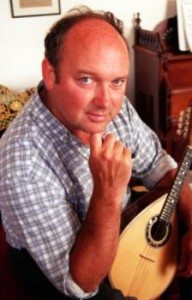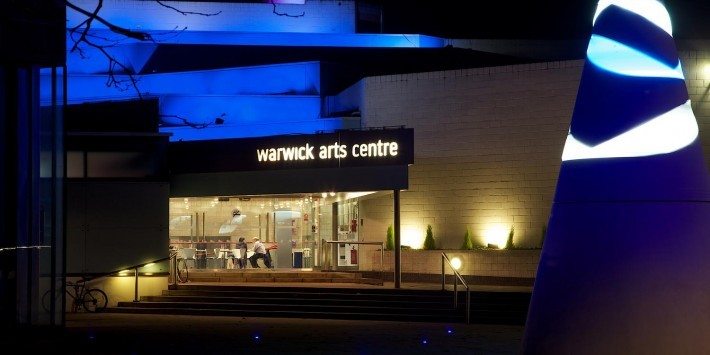A Tour of Warwick Book Festival
[dropcap]L[/dropcap]ast May, I attended the 2014 Warwick Annual Book Fest. “The Warwick Book Fest?” I hear many of you ask. “I didn’t know we had one of those.” That is fair enough, as it wasn’t particularly well-publicised. I counted one banner (in the Arts Centre), a few leaflets (on one table in the English department) and a little bulletin on the library screens post-event; nothing particularly eye-catching or memorable. But the fact that so few students heard of, and subsequently, attended the Warwick Book Fest is a terrible shame, because it was worth going to.
The festival is run over one May weekend, this year Saturday 17th– Sunday 18th, and as it doesn’t follow a strict theme, there should be something for everyone. The first talk I attended was delivered by Simon Thurley, on his book The Building of England. Spanning centuries in barely an hour, the presentation was diverse in its material, engaging, and lacking only in the sense that Thurley was clearly limited skimming the surface of what was discussed in his book.
But barely anyone was there to hear it. Despite the venue being the Woods-Scawen Room of the Arts Centre, with a capacity for 250 people, less than thirty people turned up. Why? The hour was 12:15, not inconvenient even for the late-to-bed, late-to-rise students such as myself. So where were the History students, History of Art students, the generally-interested students? It looked as though there were only two other people there under fourty besides myself, and they were stewards.
It isn’t as if Thurley, the CEO of English Heritage, is a no-name in the business. But if the subject isn’t up your street, running simultaneously was Stephen Cooper’s talk on his novel The Final Whistle, following the story of fifteen London rugby players who fought and died in the Great War. A completely different topic, though I imagine Cooper had the same low attendance problem, especially given that the next presentation I saw, Robert Colls speaking on George Orwell: English Rebel, was likewise low in numbers.
An impressive line-up, with a less than impressive audience…
Again, where were all the students? English Lit students, Philosophy students; Orwell is a famous figure with a controversial life story, so it seems unlikely that there’s just a general disinterest among Warwick students that lead to the disappointing turn out at the festival, leading me to believe it was the lack of marketing by the festival’s organisers towards its captive audience.
The event that I was most surprised by the under-attendance was the debate Snowden: Traitor or Hero? Chaired by Ben Fention, who lead the Financial Times’ coverage of the phone-hacking scandal and Leveson inquiry, debated by Professor Sir David Omand (the first UK Security and Intelligence Coordinator), Luke Harding, (foreign correspondent for the Guardian and the first reporter to be expelled from Russia since the Cold War), Ewen Macaskill, (the Guardian’s defence and intelligence correspondent), and Richard Aldrich (Professor of International Security at the University of Warwick). An impressive line-up, with a less than impressive audience. Snowden remains a controversial and relevant figure, particularly given his current asylum residence in Russia, a nation currently in the international spotlight.
 Less heavy going presentations of the day included Louis de Bernières, author of Captain Corelli’s Mandolin, readings from his recent poetry collection Imagining Alexandria. This particular talk, chaired by Michael Hulse, was one of many that encouraged active participation from its audience throughout, rather than in a concluding Q&A session, creating an easy and persisting dialogue. The same environment was recreated by Hulse in another session he hosted the following day with Jennifer Clement, on her book Prayers for the Stolen. A particularly powerful story, about the practice of stealing young girls by drug traffickers in Mexico, and a particularly powerful speaker; Clement’s was one of two books that I bought over the weekend and had signed by their author.
Less heavy going presentations of the day included Louis de Bernières, author of Captain Corelli’s Mandolin, readings from his recent poetry collection Imagining Alexandria. This particular talk, chaired by Michael Hulse, was one of many that encouraged active participation from its audience throughout, rather than in a concluding Q&A session, creating an easy and persisting dialogue. The same environment was recreated by Hulse in another session he hosted the following day with Jennifer Clement, on her book Prayers for the Stolen. A particularly powerful story, about the practice of stealing young girls by drug traffickers in Mexico, and a particularly powerful speaker; Clement’s was one of two books that I bought over the weekend and had signed by their author.
Other highlights of the second of day of the festival for me included hearing Noreen Riols speak at the Women, War and Secrecy panel. One of the few surviving members of the Special Operatives Executive’s France Section, her recount of being accidentally recruited as a spy, and concealing this from her family for most of her life, was filled with wit and humour, as no doubt is her novel on the subject, The Secret Ministry of Ag. & Fish: My Life in Churchill’s School for Spies.
The festival finished on a high note, The Real Argo, which had Tony and Joanna Mendez discussing with Dr Chris Moran the real life events behind the CIA mission that was ‘the most audacious rescue mission in history’, and inspired the 2012 film Argo, which starred Ben Affleck as Tony Mendez.
All in all, the festival constituted a weekend well spent, even if it was a smidge too close to exam season – perhaps that’s another reason for the low student attendance. It certainly raises some questions about the Book Fest’s marketing, as it missed out on a large captive audience. But regardless, the festival in itself was good, and I’d fully recommend looking at next year’s line up and attending a few presentations when the Warwick Book Fest 2015 ticks round, and checking out the footage of this year’s events if anything here has particularly struck your fancy.
Many thanks to the Warwick Arts Centre for providing press tickets for the Book Festival.
Image credits: Header, Image 1

Comments